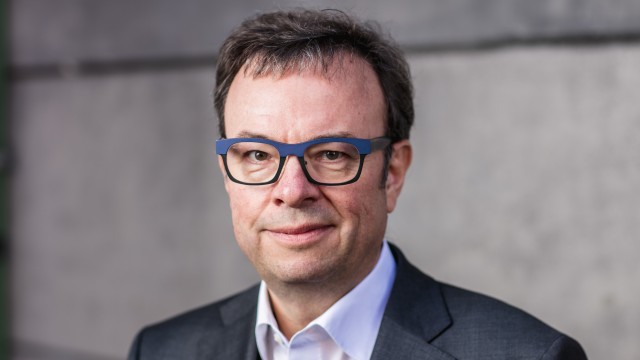Presentation by Dr. Rainer Kallenbach,
president, Connected Mobility Solutions division,
at the Bosch ConnectedWorld press briefing
on February 21, 2018, in Berlin.
Check against delivery.

Presentation by Dr. Rainer Kallenbach,
president, Connected Mobility Solutions division,
at the Bosch ConnectedWorld press briefing
on February 21, 2018, in Berlin.
Check against delivery.
Thank you, Mr. Denner.
Ladies and gentlemen,
I would like to offer you a closer look at our system!e concept. In technical terms, system!e connects the electric powertrain to the Bosch Automotive Cloud Suite. This yields web-based services that improve the everyday benefits of electromobility – and lowers the barriers to purchasing an electric car. In the future, electric cars with system!e will know precisely when their power will run out, but also where they can find the next charging station. It will also be easier to integrate them into the owner’s home power grid. Let me illustrate this with three specific applications:
Connecting electric cars with the smart home is a prime example of a cross-domain ecosystem, the supreme discipline on the internet of things. Implementing it requires a versatile company – a company like Bosch, whose expertise extends beyond the car. That is why we also see system!e as a toolkit; we will use it to derive solutions for established automakers as well as start-ups. This is no far-off vision, either: together with our customers and partners, we will be able to supply the corresponding services within the next few months. Many talk about the future of mobility. We’re making it ready for the market.
For more on what we are launching on the market besides mobility, some of which we are presenting here at Bosch ConnectedWorld, I now turn things over to Stefan Hartung.
Mobility is the largest Bosch Group business sector. According to preliminary figures, it generated sales of 55.9 billion euros in 2024, and thus contributed around 62 percent of total sales. This makes the Bosch Group one of the leading mobility suppliers. Bosch Mobility pursues a vision of mobility that is safe, sustainable, and exciting. For its customers, the outcome is integrated mobility solutions. The business sector’s main areas of activity are electrification, software and services, semiconductors and sensors, vehicle computers, advanced driver assistance systems, systems for vehicle dynamics control, repair-shop concepts, as well as technology and services for the automotive aftermarket. Bosch is synonymous with important automotive innovations, such as electronic engine management, the ESP anti-skid system, and common-rail diesel technology.
The Bosch Group is a leading global supplier of technology and services. It employs roughly 417,900 associates worldwide (as of December 31, 2024). According to preliminary figures, the company generated sales of 90.5 billion euros in 2024. Its operations are divided into four business sectors: Mobility, Industrial Technology, Consumer Goods, and Energy and Building Technology. With its business activities, the company aims to use technology to help shape universal trends such as automation, electrification, digitalization, connectivity, and an orientation to sustainability. In this context, Bosch’s broad diversification across regions and industries strengthens its innovativeness and robustness. Bosch uses its proven expertise in sensor technology, software, and services to offer customers cross-domain solutions from a single source. It also applies its expertise in connectivity and artificial intelligence in order to develop and manufacture user-friendly, sustainable products. With technology that is “Invented for life,” Bosch wants to help improve quality of life and conserve natural resources. The Bosch Group comprises Robert Bosch GmbH and its roughly 470 subsidiary and regional companies in over 60 countries. Including sales and service partners, Bosch’s global manufacturing, engineering, and sales network covers nearly every country in the world. Bosch’s innovative strength is key to the company’s further development. At 136 locations across the globe, Bosch employs some 86,900 associates in research and development, of which nearly 48,000 are software engineers.
Additional information is available online at www.bosch.com, www.iot.bosch.com, www.bosch-press.com.